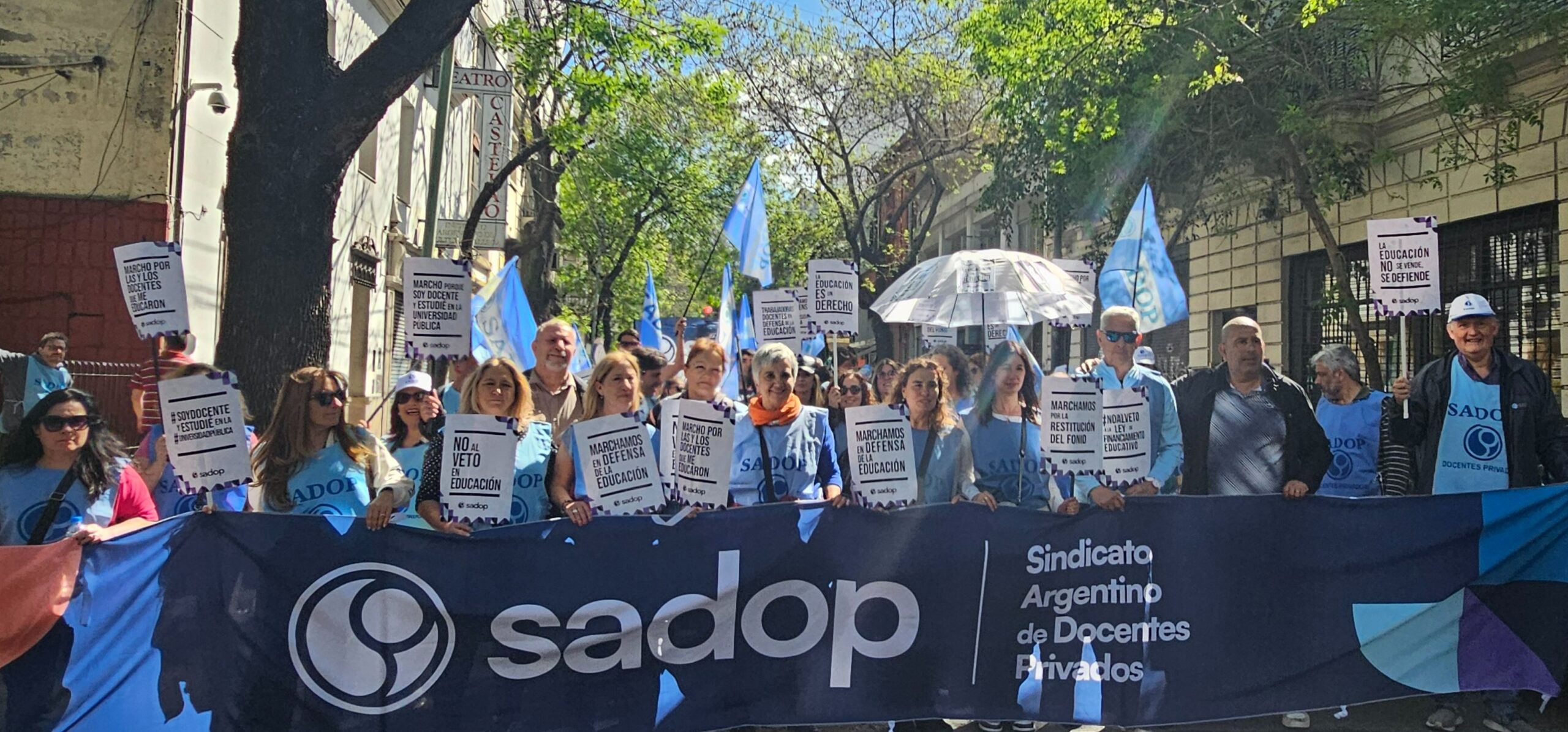Buenos Aires, Argentina – Despite protests across Argentina on Wednesday, President Javier Milei today vetoed a law that would have provided more funding for higher education, citing his zero budget deficit goals.
In an official statement released hours before the veto, the president’s office said, “It’s time that legislators understand that they can’t use demagogic populism with the resources of those who pay taxes … the right place for the debate about financing universities is during the national budget debate for 2025.”
Educators were counting on the law’s funding increases to help offset inflation as high as 200% over the past year.
At Wednesday’s protests, teachers, students, workers, unions and politicians, took to the streets of Buenos Aires and other cities in support of educators. They demanded that legislators overturn the impending presidential veto and compel the government to properly fund higher education.
“This year was very different; there were many teacher’s strikes, many days without classes,” Agostina, a psychology student and daughter of two university teachers who was at the protest in Buenos Aires, told Argentina Reports. “They are mistreating public universities, the government talks of ‘made-up students,’ while teachers earn under USD $200 a month.”
Last year, Milei ran for president on flamboyant promises of cutting benefits only for “The Caste” — a derisive term he uses for Argentina’s political elite, an idea similar to former United States President Donald Trump’s draining of the “swamp.”
But once he took office, Milei leveraged the country’s rising inflation from previous years to slash spending wherever possible. The cuts fell mostly on retirees and canceled infrastructure projects. Higher education was another victim. During the first half of 2024, his libertarian government reduced the budget that the universities needed to keep the lights on, provoking mass protests in April.
“During the first semester there was a sort of blackout; the lights weren’t turned on during the day and the elevators were shut down. It was a pretty sad sight,” remembered Eva, a communications student who also marched in Argentina’s capital on Wednesday who preferred to give only her first name. Like many of her peers, she doesn’t expect classes to return to normal next year. “It’s a constant struggle, the government is waging a culture war that will force us to take to the streets for a long time to defend basic rights such as public education,” she told Argentina Reports.
General Confederation of Labour (CGT) via X.
Reportedly in the tens of thousands, Wednesday’s march had a lower attendance than April’s, which gathered at least 500,000 people across the country.
Milei’s cabinet spent the days leading up to this week’s protest attempting to delegitimize it with claims of “made-up students” and denouncing universities’ reluctance to undergo audits.
In the aftermath, Milei supporters called out the presence of opposition politicians, such as Sergio Massa and Horacio Rodríguez Larreta, who challenged him in last year’s elections, as well as union leaders. “Don’t let yourself be manipulated politically by coup leaders,” Milei wrote on X. “Public universities are not in danger; the bounty is,” the president posted on Instagram, referencing “The Caste.”
Argentina’s education finance struggle
Teacher and staff compensation has been a persistent issue in Argentina’s education system for decades. Institutions like the University of Buenos Aires (UBA), among the highest-ranked universities in the world, rely heavily on ad honorem and underpaid educators to function.
“Making a living solely off the public university is not a possibility,” explained Giselle, an assistant teacher in UBA’s social studies faculty. After years of teaching for free, she now makes $128 a month for 10 hours of classes per week. Like most of her colleagues, this is not her only job. Teachers can’t take up more hours, she said, because then they wouldn’t be able to have another job to pay the bills. “The situation in 2023 wasn’t good and you couldn’t make a living off that salary; now it’s drastic,” Giselle added.
“I have colleagues who have had to move back in with their parents, or very far away from their workplace, because they couldn’t afford it,” said Pablo, an assistant and technician in UBA’s veterinary faculty. “Some have just quit and taken up another job.”
(Both UBA employees preferred that we don’t publish their last names for fear of retribution in the workplace.)
Students and teachers are concerned that the government is cutting spending in order to empty out public universities or even attempt to privatize them.
“The president said he is ‘a mole that wants to destroy the State from within.’ So maybe he does want to privatize [colleges],” said Pablo. “I don’t think we will let him, though.”










